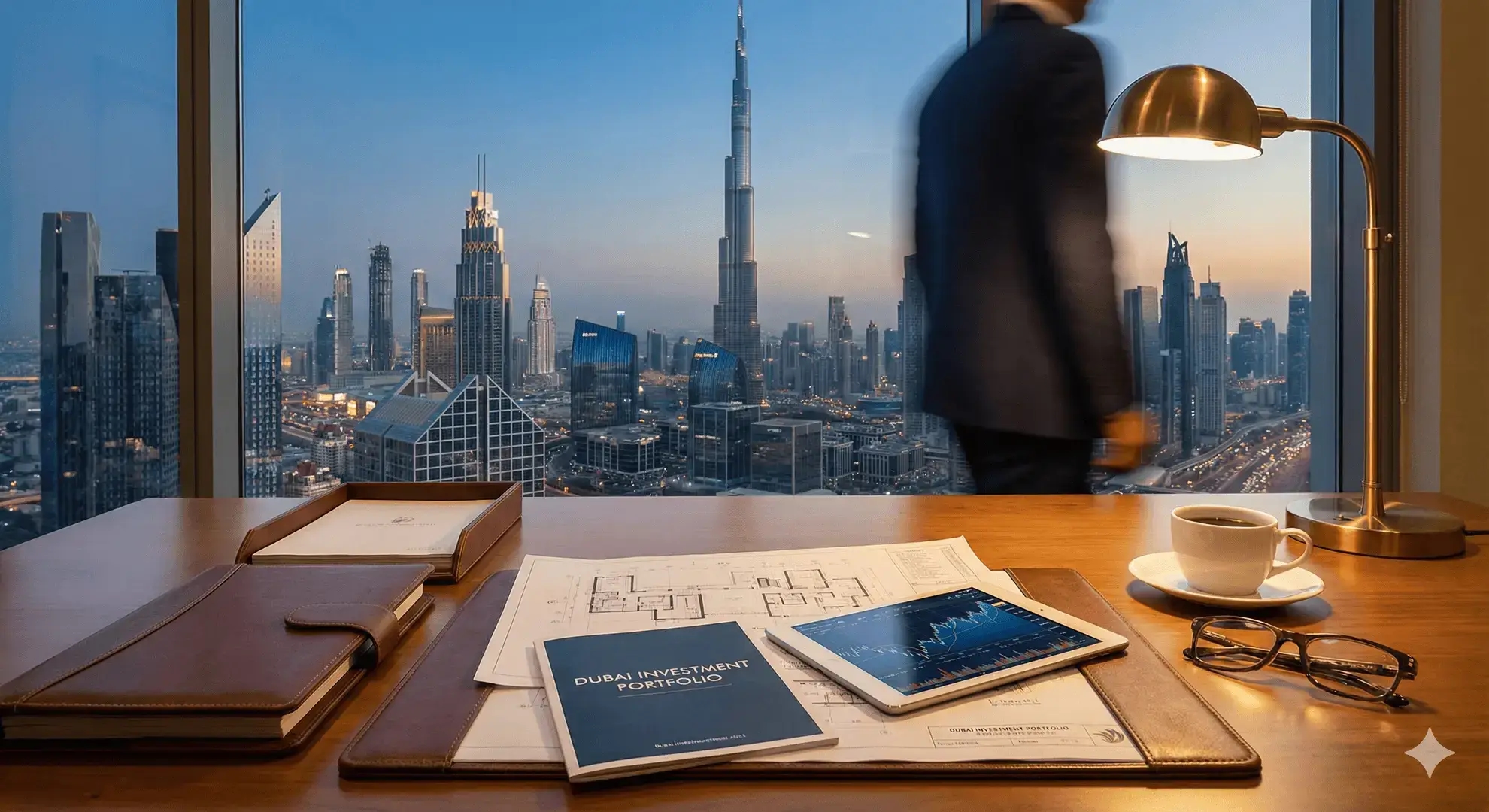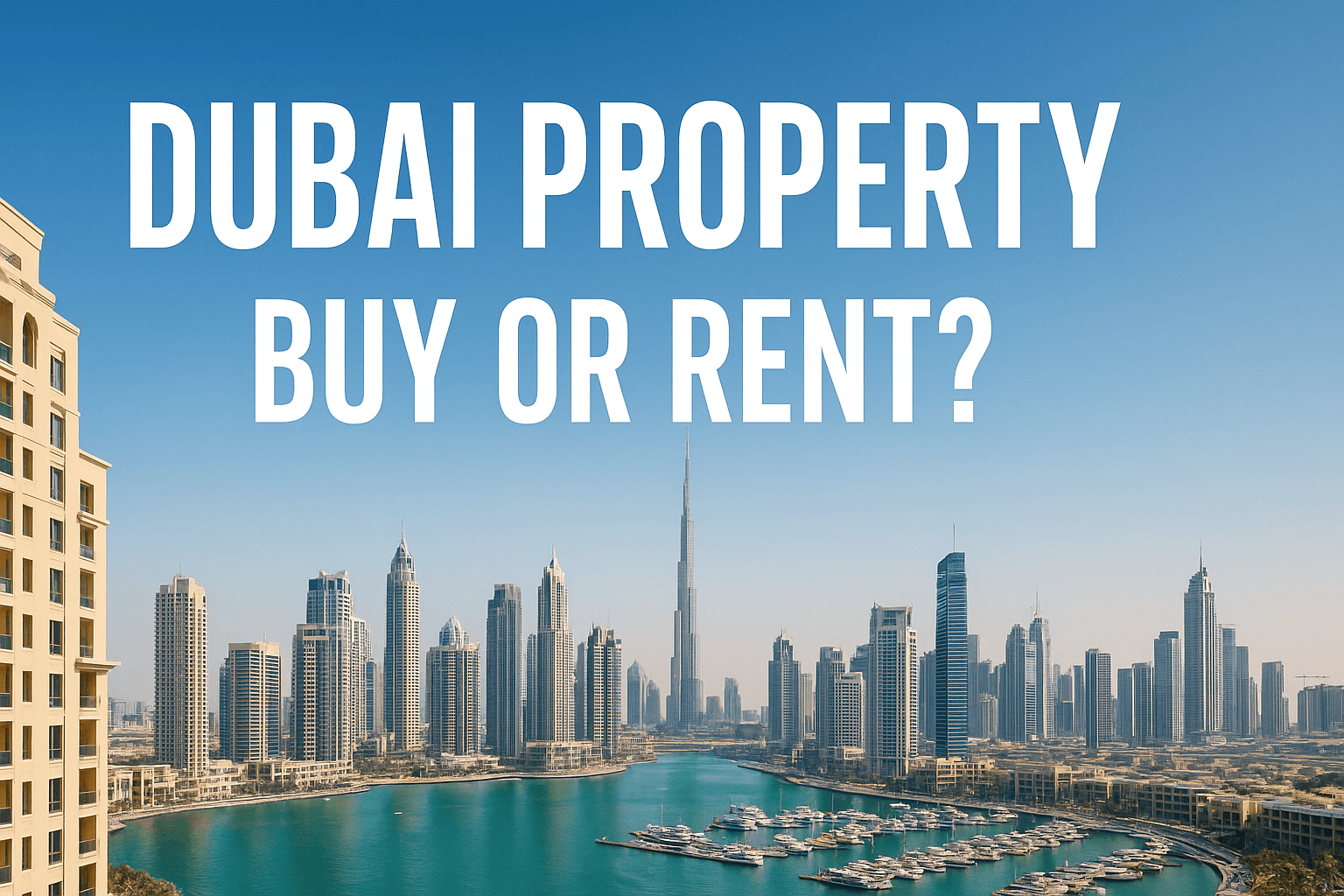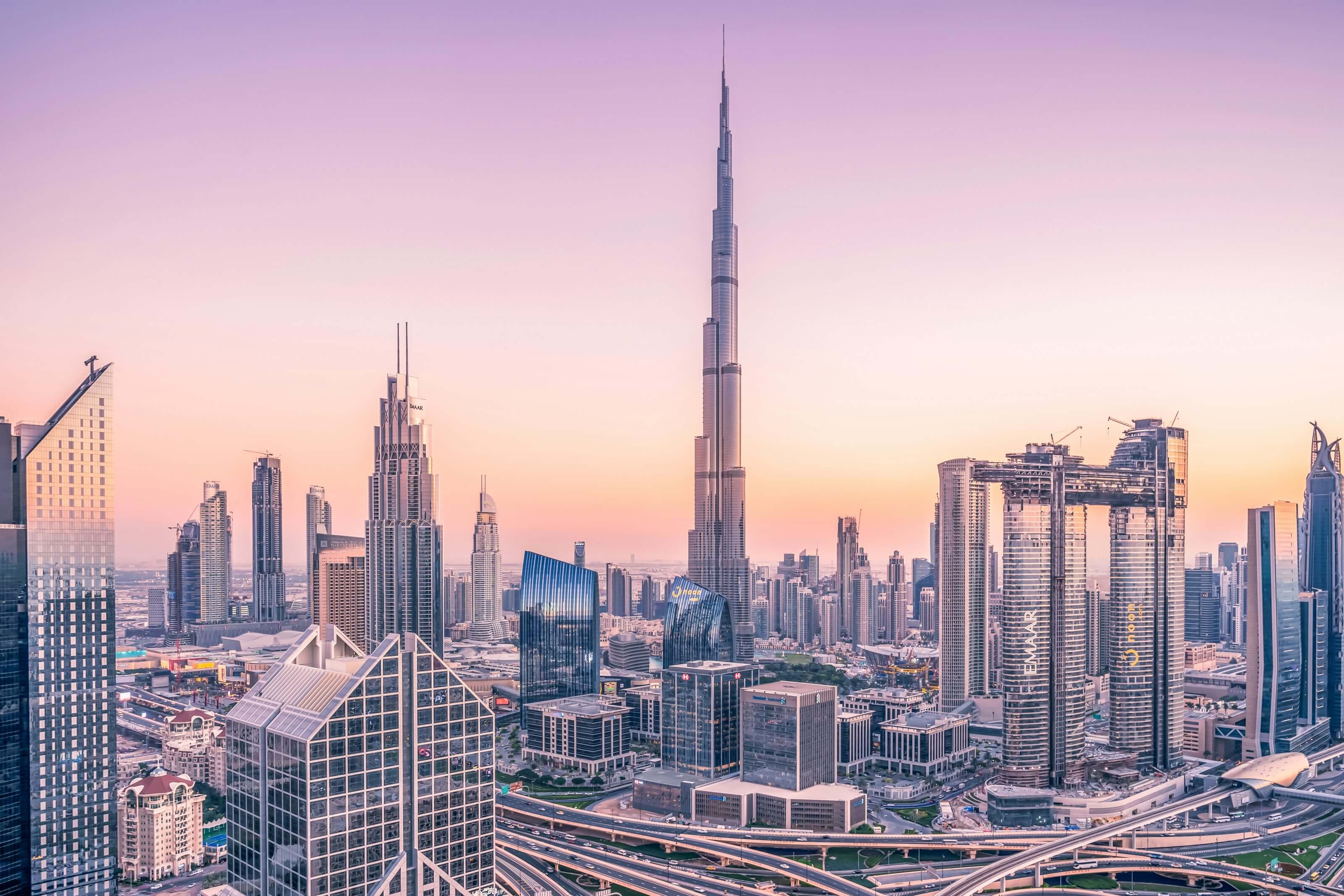How to Move to Dubai: A Step-by-Step Guide
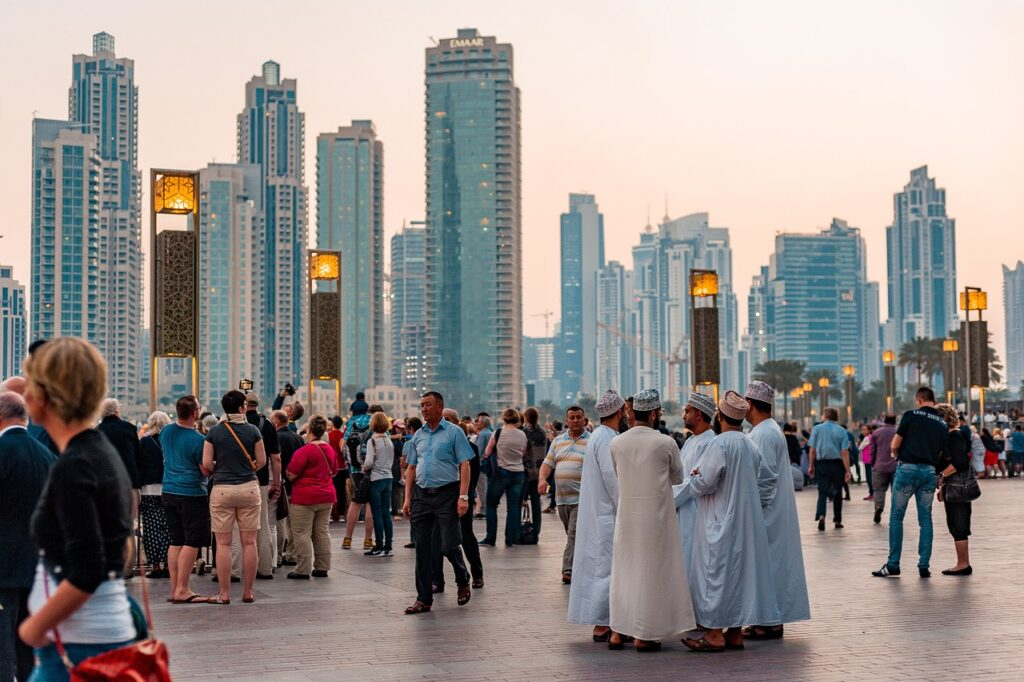
Are you ready to embark on a new adventure and make Dubai your home? This vibrant city is eagerly waiting to embrace you with its exceptional lifestyle and captivating atmosphere. It’s no wonder that Dubai has become a sought-after destination for expatriates looking to relocate.
Dubai offers an array of enticing opportunities, whether you’re seeking a promising career, a handsome salary, a high-quality lifestyle, or even a fruitful investment venture. Now that you’ve made the exciting decision to move, the next step is to acquaint yourself with everything this city has to offer.
Say goodbye to wasted time and unnecessary effort! Explore this comprehensive guide that will provide you with all the essential information you need, from your arrival in Dubai to successfully settling down and creating a fulfilling life. Get ready to unlock the door to your new chapter in this awe-inspiring city!
Welcome to Dubai!
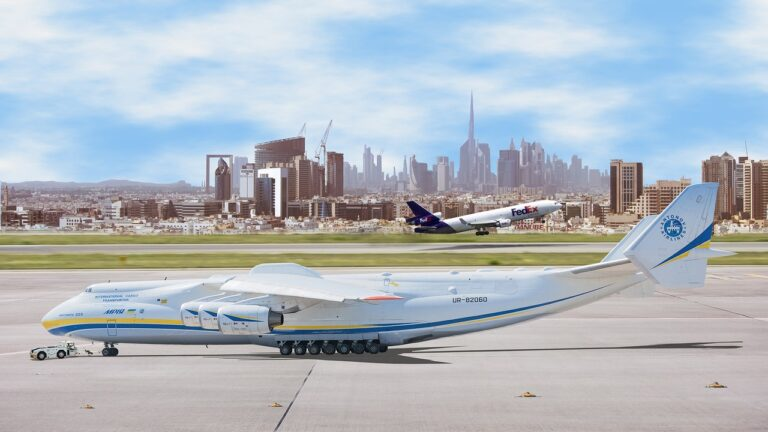
1. Checking out from the Airport
As you step foot into Dubai, there are a few important steps to follow before diving into this exciting city. First and foremost, you’ll be required to present a health certificate, a necessary document for all visitors to Dubai. Here’s what it entails:
A valid Covid-19 vaccination certificate.
If you’re not vaccinated, a negative Covid-19 test certificate. Remember, this certificate is valid for 48 hours from the date of testing.
2. Getting a New Emirati Sim Card
Once you’ve cleared the airport formalities, it’s time to ensure you stay connected in this bustling metropolis. Obtaining a local mobile number is essential for making calls and accessing the internet conveniently.
Within the airport, you’ll find various outlets representing mobile phone companies like Du, Etisalat, and Virgin Mobile. Feel free to explore their diverse plans and select the one that aligns with your requirements.
These companies also offer tailored options for short-term visitors and tourists. Don’t hesitate to communicate your preferences, allowing them to assist you in finding the optimal package.
To acquire a new sim card, simply visit any of the booths. You’ll be asked to provide:
Your Dubai entry visa.
A copy of your valid passport.
Once you have your new sim card, you’ll be able to enjoy the following services:
Sending SMS messages.
Making calls.
Browsing the internet.
Downloading any necessary apps.
SIM card outlets can be found not only within Dubai’s International Airport but also in various areas across the city, including popular attractions and different communities.
3. Providing Your Entry Permit
Dubai’s entry permit is a vital document that grants expatriates the opportunity to enter the UAE and proceed with their residency visa procedures. The validity of the entry permit depends on the visa type:
2 months for typical visa types or Green residence visas (valid for 1 to 5 years).
6 months with multiple entries for Golden Visa holders.
However, if you’re visiting for tourism, medical treatment, investment purposes, job opportunities, visiting relatives, or transit, the entry permit is known as:
Visit visa.
Tourist visa.
Transit visa.
Your sponsor, which can be your employer, a relative, a public or private entity, and others, is responsible for issuing the entry permit on your behalf.
4. Getting a Residency Visa and Emirates ID
Upon leaving the airport, obtaining your residency visa should be your top priority. This crucial document ensures you can access all the services Dubai has to offer and helps avoid any complications during your stay.
Obtaining a residency visa in Dubai is a straightforward process, designed to be transparent and easy to follow. Rest assured, you won’t find yourself lost in a sea of confusion.
Once your residency visa is issued, the next step is obtaining your Emiratis ID. This identification card grants you access to a multitude of services and amenities across the city, further enhancing your Dubai experience.
Find Your New Home

Once you’ve taken care of the necessary paperwork, it’s time to embark on the most crucial step—finding your new home. In Dubai, renting is a popular choice among expatriates, given its high demand and flexibility. However, if you’re looking for a more permanent residence or an investment opportunity, you’ll find an abundance of properties available for sale in the vibrant real estate market of Dubai.
Fortunately, the home-finding process doesn’t have to be daunting. At Property Finder, we offer a comfortable and seamless experience to help you find your perfect abode. Explore our user-friendly website, where you’ll discover an extensive range of rental and sale options across Dubai’s diverse communities.
For newcomers to the city, we highly recommend considering the rental option, as it provides greater flexibility in terms of location, property type, and lease duration. This flexibility proves especially beneficial when you’re still familiarizing yourself with the city. Furthermore, renting allows for easy relocation if your work location changes or if you need a larger space to accommodate your growing family.
Tips for Expats When Renting a Home in Dubai
Renting a home in a new city for the first time can be both thrilling and nerve-wracking. To ensure a smooth and enjoyable renting experience, here are some essential tips to consider:
Set a maximum budget limit
for rentals and stick to it throughout your search and negotiation process.
Familiarize yourself with
leasing rights and responsibilities
, including notice periods and contractual obligations.
Gain knowledge about
additional fees and taxes
associated with renting.
If you’re seeking a furnished unit,
create a checklist of essential items
you require in your new property.
Inquire about
maintenance fees for the building
and determine if the property is pet-friendly, should you have a furry companion.
Take the time to
explore the community
you find suitable, including its facilities and services.
Seek advice from
real estate experts
who can guide you through the process and help you find the best options swiftly.
Consult friends or relatives who have gone through a similar process to gather valuable
recommendations and tips
Utilize the internet to research and learn more about the communities you’re interested in, understanding their pros and cons.
Be prepared to negotiate if multiple individuals are interested in the same unit. Consider seeking assistance from real estate experts to facilitate a hassle-free process.
Types of Rental in Dubai
Dubai offers two main types of rentals:
Long-term rental:
This type of rental involves signing a lease contract for a minimum of one year, providing a more permanent living arrangement.
Short-term rental:
With short-term rentals, you can lease a unit on a weekly or monthly basis without committing to a long-term contract. This option is particularly suitable when you first arrive in the city and are in the process of settling down. Short-term rentals also tend to be more cost-effective compared to staying in a hotel.
Top Residential Areas for Rent in Dubai
Choosing the right community is crucial when searching for your new home. Consider factors such as budget, lifestyle preferences, and individual needs. Here are some top residential areas that cater to various requirements:
For individuals or newlyweds:
Dubai Marina
Downtown Dubai
Business Bay
Jumeirah Lake Towers (JLT)
City Walk
For families:
Palm Jumeirah
Mirdif
Jumeirah Beach Residences (JBR)
Mudon
Arabian Ranches
These communities offer a range of unit sizes and prices, ensuring you’ll find an option that suits your specific demands. Explore the wide variety of properties available for rent in Dubai on Property Finder for more detailed information.
Top Residential Areas for Sale in Dubai
If you’re considering purchasing a property in Dubai, several factors come into play, such as the property’s value, investment potential, location, and available services. The UAE allows expatriates and visitors to own properties with full ownership rights in designated communities known as Freehold areas. The Dubai Land Department (DLD) updates this list annually. Here are some of the top freehold communities:
Palm Jumeirah
Burj Khalifa
Dubai Investment Park
Jumeirah Beach Residence (JBR)
Dubai Sports City
Motor City
Jebel Ali
The Greens
If you’re interested in owning a property in Dubai, our portal provides a comprehensive selection of properties for sale. Additionally, if you require assistance with obtaining a home loan for primary or secondary properties, our professional team at Mortgage Finder is readily available to help you find the best deal.
Finding your ideal home in Dubai is an exciting journey, and Property Finder is here to make it as seamless and enjoyable as possible. Whether you’re looking to rent or buy, explore our listings and take the first step towards creating your dream life in this remarkable emirate.
Start Working in Dubai
Image: StockSnap | Pixabay

Embarking on a new professional journey in Dubai requires a solid understanding of the working procedures and regulations in this emirate. We aim to provide you with all the necessary details to help you navigate through this crucial step with clarity and confidence.
Get Your Paperwork Ready
Work Permit: Obtaining a work permit is vital to commence your employment in Dubai, and it is your employer’s responsibility to facilitate the process. However, you may be required to prepare certain documents to proceed. Here are the documents typically requested by employers:
Colored photograph with a white backdrop
Copy of a passport valid for at least 6 months
Completed Employment Offer form, signed by both the employer and the employee
Academic documentation relevant to the skill level required for the profession
Note: Unskilled workers or individuals earning less than AED 4000/month may not require a degree.
Residence Visa for Working in UAE: The residency visa for employment is one of the types of residency visas in the UAE, which is issued by the employer or sponsor to grant permanent residency. The validity of the residency visa ranges from 1 to 3 years, depending on the employment contract and job position. You can check the status of your visa using your valid passport on the website of the General Directorate of Residency and Foreigners Affairs (GDRFA). Once your residency visa for work is issued, you will be eligible to obtain an Emirates ID. These procedures apply whether you are relocating from the UK, India, or any other location.
Familiarize Yourself with Working Regulations
Working Hours: The UAE government recently adjusted the official working hours and days to align with international working standards, ensuring a more seamless experience for employees and residents. The division of working days and weekends is as follows:
Working days: Monday – Friday
Weekend: Saturday – Sunday
These working days are complemented by official holidays and events granted by the country to employers.Salaries in Dubai: The average monthly salary in Dubai ranges from AED 19,000 to AED 21,500, based on performance rates and the size of the business sector. However, it’s important to note that salaries can vary depending on factors such as field, job position, and company size. Trusted sources and insights suggest that the minimum wage across various sectors in Dubai is AED 5,000 for employers.By familiarizing yourself with these working regulations, you can better navigate the job market and ensure a smooth transition into the professional landscape of Dubai.Preparing for employment in Dubai requires careful attention to paperwork and an understanding of the local working regulations. With these essential details at your disposal, you can embark on your new career path confidently and make the most of the abundant opportunities in this vibrant city.
Enjoy Living in Dubai
When relocating to a new city like Dubai, it’s important to familiarize yourself with the local culture and norms to ensure a smooth and enjoyable experience. Whether you are moving with your family or on your own, consider the following points to gain a better understanding of the city and its environment:
Safety:
Dubai is known for being one of the safest cities in the world, with low crime rates. You can feel secure and confident in your day-to-day life.
Climate:
Dubai experiences a mostly humid and hot climate. However, during the winter season (from December to March), the weather becomes more pleasant with cooler temperatures and refreshing breezes.
Cultural Sensitivity:
Dubai has a diverse population, and it is important to show respect for different cultures and avoid any racist or verbal comments. Defamation of others can lead to legal consequences, including imprisonment or being banned from entering the country.
Alcohol Consumption:
Drinking alcohol in public areas or on the streets is not allowed in Dubai. Consumption is only permitted in licensed establishments such as hotels, bars, and restaurants.
Etiquette:
It is generally advised for men not to initiate handshakes with women unless the woman extends her hand first. This gesture shows respect for cultural norms.
Pensions:
It’s important to note that most private companies and businesses in Dubai do not offer pensions as part of their employment packages. It’s advisable to plan for your long-term financial security accordingly.
For families moving to Dubai from the UK or any other Eastern country, it’s beneficial to familiarize themselves with Dubai’s culture, as there may be differences compared to their home countries.Cost of Living in DubaiDubai is often considered an expensive city, particularly for those with lower incomes. It’s essential to have an overview of the average costs of basic necessities and services to help you estimate and plan your expenses:
Housing expenses typically account for 15% to 30% of your monthly salary.
Food and transportation costs each make up around 15% of your budget.
Here are some average costs of basic expenses in Dubai:
Monthly bus subscription: AED 340
Taxi ride: AED 12
Fuel: AED 3.84 per liter
Food: Prices range from AED 4 to AED 40 per kilogram
Water and Electricity (DEWA): AED 700 per month
Home Internet: AED 360 per month
Dubai’s water and electricity services are managed by DEWA (Dubai Electricity and Water Authority). You will need to register for an account through their online portal to manage your bills and payments conveniently.By familiarizing yourself with these aspects, you can adapt to the local lifestyle, plan your finances effectively, and fully enjoy your time living in Dubai.
Commuting Around the City
Dubai offers a variety of transportation options that make commuting within the city convenient and hassle-free. Here are the different means of transportation available in Dubai:
Metro:
Dubai has a modern and efficient metro system that connects various parts of the city. It is a convenient way to travel, especially during peak hours. The metro operates on different lines, serving both the city center and the outskirts.
Tram:
Dubai also has a tram network that operates in certain areas, providing additional connectivity to major destinations.
Buses:
The bus network in Dubai is extensive and covers a wide range of routes, making it a cost-effective mode of transportation. Buses are operated by the Roads and Transport Authority (RTA) and are a popular choice for both residents and tourists.
Private Cabs:
Ride-hailing services like Uber and local equivalent Careem are widely available in Dubai. They offer a convenient and comfortable mode of transportation, allowing you to book a private cab through mobile applications.
Taxis:
Taxis are easily accessible throughout Dubai. You can find them at designated taxi stands or book them through RTA’s official taxi booking app. Dubai taxis are known for their reliability and quality of service.
To facilitate payment for public transportation, Dubai uses the Nol Smart Card system. This electronic card allows you to pay for metro, tram, and bus rides without the need for cash or bank cards. Using a Nol Card also often provides discounted fares.
Driving in Dubai
If you plan to drive in Dubai, there are certain requirements and procedures to follow:
Driving License:
If you don’t have a driving license issued in Dubai, you will need to obtain one. The conditions for obtaining a driving license include being 21 years or older, passing the driving test conducted by the Emirati government, and meeting specific health requirements.
Car Insurance:
If you own a car or plan to buy one, it is mandatory to have car insurance in Dubai. The Roads and Transport Authority (RTA) manages car insurance services, and you can apply for insurance through their website. The most common type of insurance is Third Party Liability Insurance, which provides basic coverage.
To apply for a driving license, you will need to submit documents such as a valid residency visa, a copy of your current rental contract, and an official letter from your employer or sponsor confirming your residency.
Explore the Services in Dubai
Dubai provides a range of services to meet the needs of residents and expatriates. Here are some key services worth knowing about:
Healthcare Services:
Dubai offers comprehensive healthcare coverage to expatriates through specific healthcare cards, which can be obtained through your employer. These cards provide access to healthcare services and offer a 50% discount on the basic service value. The cost of issuing these cards is approximately AED 500 for all ages.
Education in Dubai:
Dubai provides options for both government and private educational institutions. Expats can enroll their children in schools following different curricula, including British, American, Indian, and Canadian. Tuition fees vary depending on the type of school and educational stage. Annual tuition fees for nurseries range from AED 2,500, while fees for schools can range from AED 6,000 for government schools to AED 14,000 to AED 22,000 for private/international schools. University tuition fees can range from AED 37,500 to AED 70,000.
When choosing a school, consider the type of education, tuition fees, and location. Select a school that aligns with your preferences and is conveniently located near your home.
Online Services:
In Dubai, many services have been digitalized, making it convenient for residents to access them online. Here are some notable online services and apps in Dubai:
Dubai Now:
This is a unified portal that provides access to more than 120 governmental and private services. Through Dubai Now, you can pay bills, renew your car license, manage utilities like DEWA (Dubai Electricity and Water Authority) and Ejari (rental contract registration), and access various other services that cater to your daily needs.
Salik:
Salik is an automated toll system in Dubai. You can use the Salik app to manage your Salik account, recharge your balance, and pay toll fees for using designated roads.
DEWA:
DEWA is responsible for water and electricity services in Dubai. The DEWA app allows you to manage your utility bills, make payments, and access necessary documents related to your residency.
Dubai Police App:
The Dubai Police app provides various services related to traffic fines, vehicle registration, police clearance certificates, and more. You can also report crimes or emergencies through the app.
Dubai Mall App:
The Dubai Mall app offers a seamless shopping experience within one of the world’s largest shopping malls. It provides information about stores, promotions, events, and facilitates navigation within the mall.
Dubai Taxi App:
The Dubai Taxi app allows you to book taxis conveniently, track your ride, and make cashless payments.
These are just a few examples of the online services and apps available in Dubai. The city has embraced digitalization, making it easier for residents to access services and complete various tasks online, saving time and effort.By familiarizing yourself with these digital platforms, you can efficiently manage your daily activities and access the services you need in Dubai.
Discover the Excitement of Dubai
Dubai offers a plethora of exciting activities and attractions for residents and visitors alike. Here are some key points to know about having fun in Dubai:
Must-Visit Destinations:
Burj Khalifa:
The tallest building in the world, offering breathtaking views of the city from its observation deck.
Museum of the Future:
A unique museum that showcases futuristic innovations and technologies.
IMG World of Adventures:
An indoor theme park featuring various entertainment zones and thrilling rides.
Green Planet:
A tropical rainforest-themed bio-dome where you can explore diverse flora and fauna.
Dubai Parks and Resorts:
A large entertainment complex with multiple theme parks, including Motiongate, Legoland, and Bollywood Parks.
Shopping Malls: Dubai is renowned for its extravagant malls that cater to all shopping enthusiasts. Some of the best malls in Dubai include:
Dubai Mall:
One of the world’s largest malls, housing high-end fashion brands, entertainment options, and the famous Dubai Aquarium.
Mall of the Emirates:
Known for its luxury shopping, indoor ski slope (Ski Dubai), and numerous dining options.
Dubai Festival City:
A waterfront shopping destination offering a mix of retail, dining, and entertainment experiences.
Dubai Marina Mall:
Located near the picturesque Dubai Marina, it features a range of stores and waterfront dining options.
Parks and Outdoor Spaces:
If you appreciate nature and outdoor activities, Dubai has several parks where you can relax and enjoy recreational activities. Some notable parks include Safa Park, Zabeel Park, and Al Barsha Pond Park. These parks offer green spaces for picnics, walking trails, and fitness facilities.
Moving on to the frequently asked questions (FAQs):
Is Moving to Dubai Worth it?
Yes, moving to Dubai offers numerous advantages, such as a high standard of living, career opportunities, and a safe environment.
Can You Just Move to Dubai?
You need to have a residency visa plan to move to Dubai. There are different types of residency visas available, and you can choose the one that suits your situation.
What Should You Know Before Moving to Dubai?
Before moving to Dubai, consider important factors such as residency visa requirements, necessary documents, cost of living, suitable community, and knowledge of local laws.
How Much Money Do You Need to Move to Dubai?
The amount of money required to move to Dubai varies depending on factors like lifestyle preferences. However, you might need around AED 3,500 to AED 5,000 per month to cover basic living expenses, excluding rent.
Can I Move to Dubai Without a Job?
Yes, it is possible to move to Dubai without a job as the UAE has introduced new types of visas. However, having a job offer or securing employment beforehand is highly recommended.
What Is a Good Enough Salary to Live in Dubai?
A good salary to live comfortably in Dubai ranges between AED 15,000 to AED 20,000 per month. However, this can vary based on individual needs and circumstances.
Is Moving to Dubai a Good Career Move?
Yes, moving to Dubai can be a beneficial career move due to the presence of international companies, promising job opportunities, and a competitive market.
Which Is the Best Area in Dubai to Live in as an Expat?
There are several popular areas in Dubai for expats, such as Dubai Marina, Deira, Mirdif, and Al Barsha. Consider factors like price range, amenities, accessibility, and personal preferences when choosing a suitable area.
How Much Is the Rent in Dubai per Month?
The monthly rental prices in Dubai can vary depending on factors such as the type of unit, location, size, amenities, and furnishing status. The starting range for rental prices is around AED 4,500 per month.
Which Part of Dubai Is the Cheapest?
Dubai has several affordable areas that offer necessary services and facilities. Some of the cheapest districts in Dubai include Deira, Dubai Production City, International City, Jumeirah Village Circle (JVC), and Dubai South.
What Are the Disadvantages of Living in Dubai?
While Dubai has many advantages, there are some challenges to consider. These include heavy traffic congestion, intense competition for job opportunities, hot weather for a major part of the year, and higher prices if you have a minimum wage.
What Are the Cons of Moving to Dubai?
It seems there was an error in the text, as it says “cons” but provides positive aspects. However, based on the previous information, some cons may include adapting to the diverse culture, but this also presents an opportunity for acceptance and respect. Additionally, Dubai’s systematic services and diverse educational systems can be seen as advantages rather than disadvantages. Lastly, Dubai’s growing economy and investment opportunities make it an attractive place to live.
Indeed, moving to Dubai can be a significant and exciting step in your life. With its thriving economy, diverse culture, and numerous opportunities, Dubai offers a unique experience for expatriates. By following the information and guidelines provided in this guide, you can better prepare yourself for a successful transition and settle into your new life in Dubai.Remember to consider factors such as visa requirements, employment opportunities, housing options, cost of living, and cultural norms before making any decisions. Conduct thorough research, seek advice from professionals, and connect with local communities to make the most of your experience in Dubai.Embrace the opportunities, explore the city’s attractions, and make the most of your time in this vibrant and dynamic metropolis. Enjoy the journey and the new experiences that await you in Dubai!

